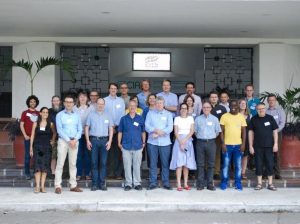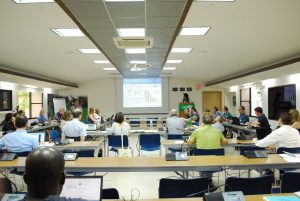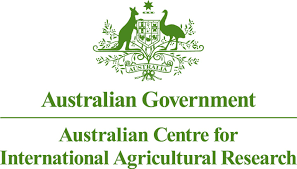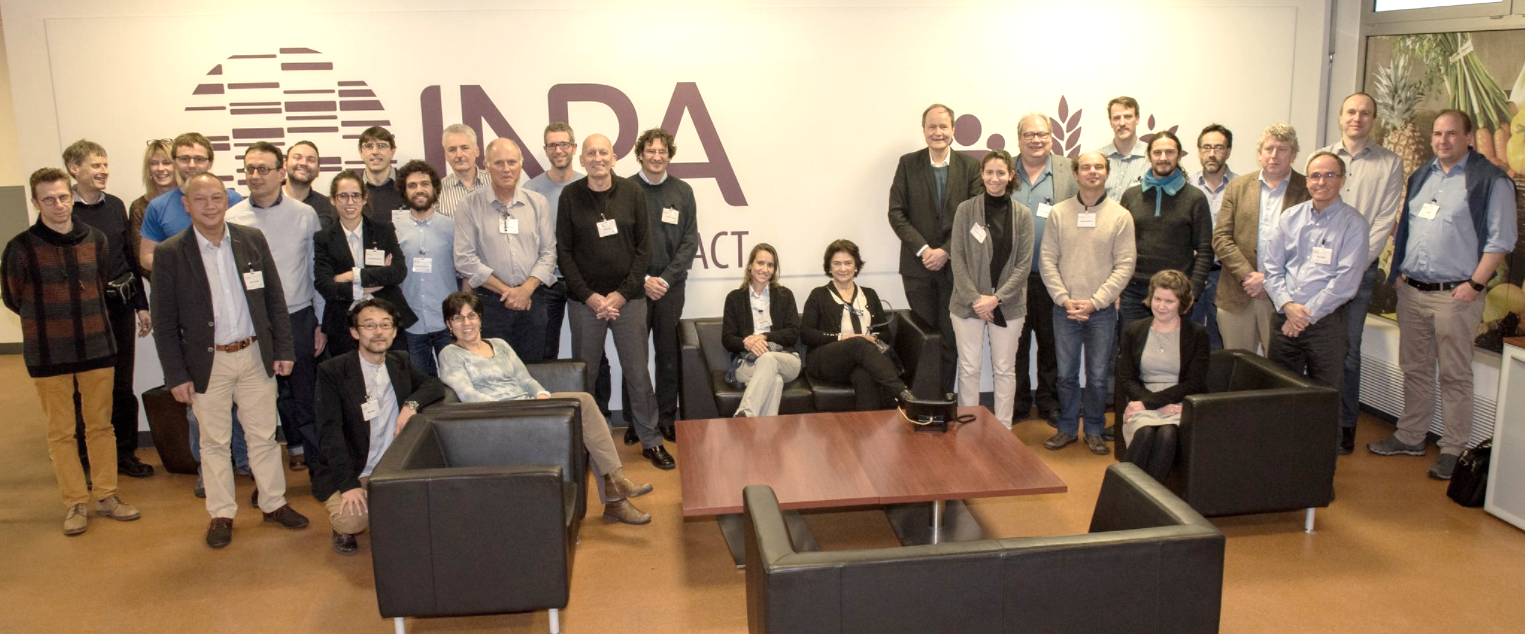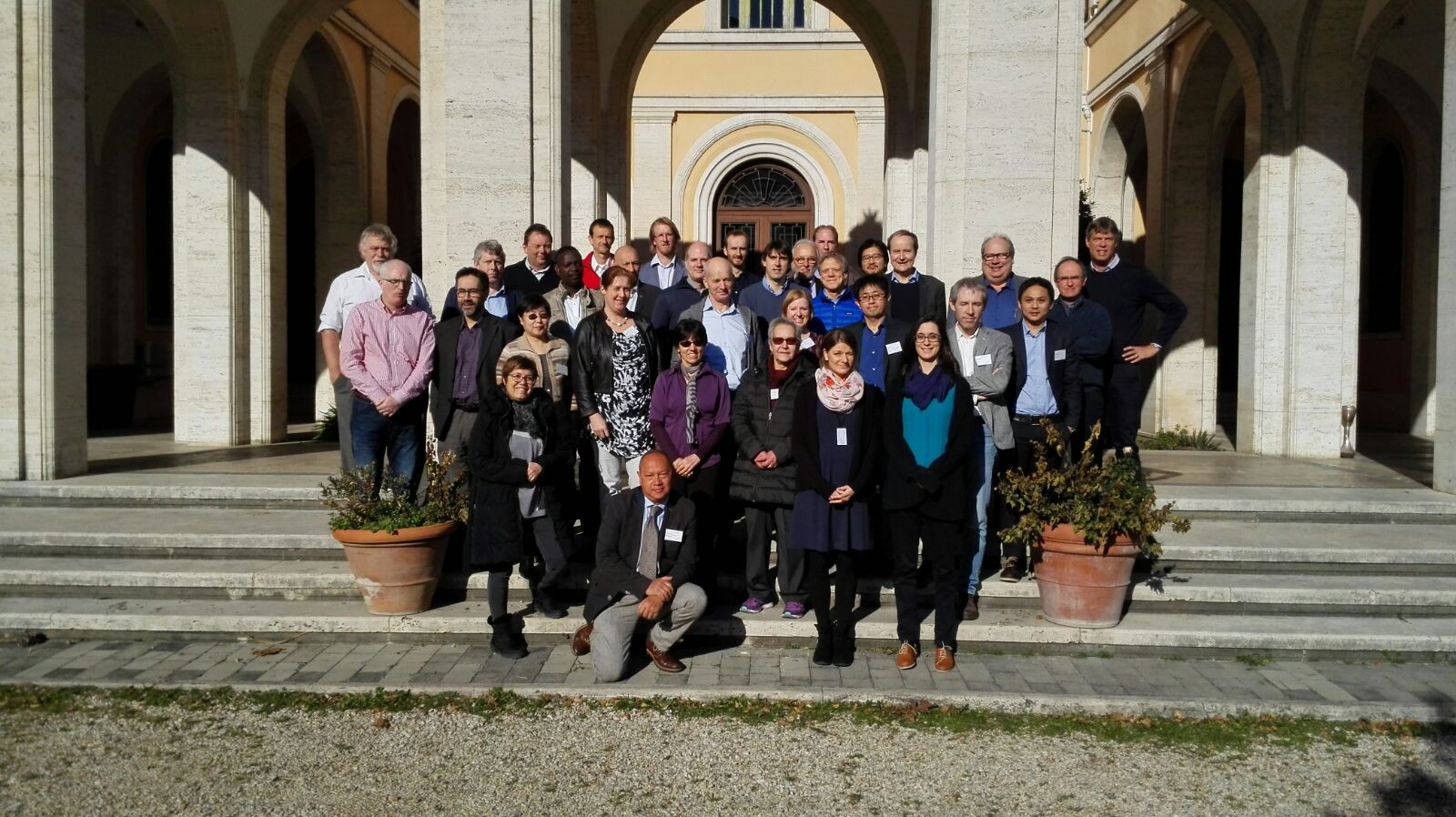The Integrative Research Group (IRG) of the Global Research Alliance on Agricultural Greenhouse Gases (GRA) is hosting its Webinar Meeting “Australian Soil Carbon Offset Methods: the science, the policy and the practice”. Presented by the Australian Centre for International Agricultural Research, the Australian Government Department of Environment and Energy, and the Australian Government Clean Energy Regulator.
When: June 26, 2019, at 9:00 P.M (Canberra UTC+10).
What is this webinar about?
The Australian Emissions Reduction Fund (ERF) is a voluntary scheme that supports Australian businesses, farmers and land managers to take actions to reduce emissions and improve the environment. By running projects to reduce emissions and store carbon, businesses, land managers and others can earn Australian carbon credit units (ACCUs). These units can be sold to the Australian Government through a carbon abatement contract, or to other businesses seeking to offset their emissions. Over 770 projects have been registered under many eligible activities, including energy efficiency, waste management, revegetation, livestock management, savanna fire management and soil carbon sequestration.
Eligible emissions reduction activities are included in ‘methodology determinations’, or ‘methods’ for short. Methods are developed by the government in consultation with industry and technical experts. They set out the rules for estimating carbon abatement from different activities, including in the land sector. These methods ensure that carbon abatement is measurable, verifiable and additional to business as usual operations.
What will you learn?
Join Beverly Henry, Vyt Vilkaitis and Konrad Muller to hear about the soil carbon methods under Australia’s ERF – the development of the underpinning science, the policy framework and the practicalities of the methods.
Beverley, Vyt and Konrad will discuss all this, in the context of the two legislated methods currently approved for soil carbon offsets:
- Estimating sequestration of carbon in soil using default values method (model-based soil carbon)
- Measurement of soil carbon sequestration in agricultural systems method
Speakers:
Beverley Henry – GRA, IRG co-chair, member of the Scientific and Technical Committee of the 4p1000 Initiative.
Through academic and consulting positions, she participates in several Australian and international climate change committees and panels.
Vyt Vilkaitis – Australian Department of the Environment and Energy working on the ERF.
He has worked in government policy for over 10 years focusing on natural resource management.
Konrad Muller – Member of the Australian Government Clean Energy Regulator, ERF Policy Team
He advises on the design, implementation and strategic issues of the ERF. Konrad was formerly in the Australian Government Department of Agriculture with an academic background in agricultural science.
Please register here.
Sunday, August 04, 2019, Foz do Iguacu, Brazil
The Global Research Alliance, Integrated Research Group (IRG), brings together global networks of research scientists with common interests in modelling of greenhouse gas (GHG) emissions, mitigation solutions, soil carbon sequestration and to inform GHG inventories.
One of the core objectives of the IRG is capacity building, particularly in encouraging younger scientists, to enhance their skills in farm systems analysis and modelling as an essential component of GHG mitigation research.
The purpose of this workshop is therefore to bring together research scientists with experience in farm systems modelling of GHG mitigation, to share their experiences and encourage those with an emerging interest in this area of work.
The outcome would be an expanded global network GHG modellers, committed to collaborating with the next generation of emerging farm systems modellers around the world in farm systems analysis of GHG mitigation.
Structure of the workshop
The workshop invites short (10 minutes) presentations from delegates working in farm systems analysis and modelling of GHG mitigation. These can be either real case study farms or regionally representative farming systems or components
We encourage the presenters to structure their presentations to cover:
- Why the study was conducted;
- How the study was conducted (models used, methods, economics of mitigation) and
- What would you do differently if you repeated the study?
Each talk will be followed by another 10 minutes of facilitated discussion to ensure that attendees get the maximum value from each talk. The day will be divided into themes, depending on the talks being offered e.g. component modelling of soil carbon, enteric methane, nitrous oxide and farm systems analysis. At the end of each theme, there will again be time for general discussion.
The day will end with a summary session of the key mitigation options modelled and models/tools that have been and can be applied, plus discussion on how delegates can collaborate in future.
We therefore invite all those interested in presenting their farm systems modelling research, to contact the organisers, providing a title of their talk and a maximum 100-word abstract of the study they would like to present
Contact:
Prof. Richard Eckard,
Global Research Alliance, Integrative Research Group
The University of Melbourne
The Integrative Research Group (IRG) of the Global Research Alliance on Agricultural Greenhouse Gases (GRA) is hosting its first webinar meeting: “IRG linkages with the 4p1000 initiative and the CIRCASA project”.
This webinar is part of a series of webinars which aim to inform the GRA community and others about the IRG activities contributing to the GRA goals. For this first time, the presenters will mainly talk about other projects and initiatives’ structure and how they interact with and complement the IRG activities. They will present “The Coordination of International Research Cooperation on Soil CArbon Sequestration in Agriculture” (CIRCASA) and the “4per1000: Soils for food security and Climate” initiative.
Programme: 1 hour
Presentation of the IRG network and activities: Pamela Joosse
Presentation and structure of CIRCASA Project: Jean-François Soussana
Presentation and structure of the 4p1000 Initiative: Paul Luu
Discussion: Link between initiatives and possible interactions
Speakers:
Pamela Joosse – IRG co-chair, Senior Soil and Nutrient Management Specialist
Jean-François Soussana – IRG co-chair and CIRCASA project coordinator, Vice President in charge of International Policy of INRA
Paul Luu – Executive Secretary of the 4p1000 initiative, Agronomist specialized in tropical agronomy and agroforestry
The GRA’s Integrative Research Group (IRG) met in Cali, Colombia, on the 4th and 5th February 2019. This was the group’s third annual meeting, which included 36 participants from 14 GRA member countries. Experts from the International Centre for Tropical Agriculture (CIAT), Coordination of International Research Cooperation on Soil Carbon Sequestration in Agriculture (CIRCASA), Climate Change, Agriculture and Food Security (CCAFS), 4per1000, French Agricultural Research Centre for International Development (CIRAD), International Soil Reference Information Centre (ISRIC), and the EU also attended.
One of the major outcomes of the meeting was a network organisation and restructuring with existing work prioritized now across three networks; The Nationally Determined Contribution (NDC) Support Network, The Soil Carbon Sequestration Network and The Farm to Regional Integration Modelling Network. The group also agreed to the development of a series of webinars to increase science communication amongst scientists and related parties.
The meeting was attended by Australia, Brazil, Canada, Denmark, France, Ghana, the Netherlands, New Zealand, Norway, Spain, United Kingdom, United States of America and Uruguay. The purpose of the IRG is to foster collaboration in the science community across Alliance research groups and between Alliance member countries, international partnerships, research organisations and research institutions to ultimately develop international knowledge and capabilities for estimation, monitoring, and projecting greenhouse gas emissions within and across agricultural systems.
The CIRCASA project, to coordinate soil organic carbon research, are seeking stakeholder views on the role of Soil Organic Carbon (SOC) management for climate change mitigation and sustainable development.
If you are a farmer, landowner, public official, a non-profit organisation, private business, in academia, a member of civil society, a government authority, or dealing with soil organic carbon management in any other way, the CIRCASA project team would love to hear your opinions.
There are no ‘right’ or ‘wrong’ answers. The survey takes around 30 minutes to complete. It is available in seven languages. Your answers will be treated confidentially and anonymously. The data generated will be analysed to make comparisons across stakeholder groups and countries around the globe.
The results of the stakeholder survey will inform an international research agenda on SOC management. Such an agenda will strengthen coordination in global research on SOC management in agricultural soils, leading to improved understanding and scientific basis to target ambitious practices required to preserve and enhance SOC.
Follow the link below to contribute, the survey is open until 31 October 2018.
Australia has nominated a new leader to Co-Chair our Integrative Research Group. Professor Richard Eckard will join Canadian Dr Brian McConkey and French Professor Jean-François Soussana.
Richard is Professor of Livestock Production Systems and Director of the Primary Industries Climate Challenges Centre (www.piccc.org.au) at the University of Melbourne, and represents the Australian government through the Australian Centre for International Agricultural Research.
Also co-lead of the Integrative Research Group’s Farm to Regional Network, Richard’s research focuses on sustainable livestock production, nitrogen cycling and loss in grazing systems, with a recent focus on carbon farming and options for livestock production systems to respond to a changing climate. Richard coordinates a research team focused on farm systems analysis, reconciling productivity, adaptation and mitigation, underpinning the development of carbon farming offset methodologies and improved inventory accounting for agricultural emissions.
The GRA’s Integrative Research Group (IRG) had a very fruitful meeting hosted by France in Paris on January 17-18. This was the group’s second annual meeting since being formed as a merger between the Inventories & Monitoring and the Soil Carbon Sequestration Cross-Cutting Groups. The meeting was attended by 34 participants, representing 14 Alliance member countries, and invited experts.
Meeting outcomes
The country representatives highlighted some of their important research activities and needs relevant to the IRG. There was optimism about how the emerging projects from the Inventory flagship and Carbon Sequestration flagship will contribute to the on-going work of the Inventories and Carbon Sequestration Networks. The Group decided that the current focus of the Grassland Network on carbon sequestration would be better included as one of priorities for the new Carbon Sequestration Network. The integration of different greenhouse gas emissions for livestock production systems that involve grassland fits well within the new Farm to Region Modelling Network. Consequently, the Grassland Network will dissolve and GRA members and partners engaged in grasslands need to participate actively in the new Carbon Sequestration and the Farm to Regional Networks to realise the great opportunities for grassland management to reduce greenhouse gas emission intensity. The meeting ended with a stimulating discussion of how the IRG could help fill some important knowledge gaps.
From 19-20 January last month the Global Research Alliance’s Integrative Research Group held their first independent meeting in Rome, Italy. At this meeting they reviewed their progress to date and held some discussions on Flagship projects and steps to develop their five Networks.
The meeting was attended by 34 participants from 16 Alliance member countries (Australia, Canada, China, France, Ghana, Ireland, Italy, Japan, Netherlands, New Zealand, Norway, Spain, Thailand, United Kingdom, USA, Uruguay), and invited experts.
The Integrative Research Group was formed after the 2015 Council Meeting after the decision was made to merge two previous cross-cutting groups: Soil Carbon & Nitrogen Cycling and Inventories & Monitoring.
The Meeting Report is now available in the Members’ Area of this website, or read the short Meeting Summary here
A series of webinars took place earlier this year to share the outcomes of the UK-led project “Scoping the potential for Earth Observation to provide agricultural activity data for inventory compilation”.
For those that couldn’t attend, the webinars were recorded and are now available to view online:
- International Stocktake on Activity Data requirements and Earth Observation for Inventory Compilation
- Historic International Earth Observation Usage Case Study
- Using the annually updated but coarse resolution MODIS global land cover product for greenhouse gas accounting. A case study for the UK.
Handouts for each webinar topic are available for download
If you have any comments or questions please use the contact details provided in the handouts.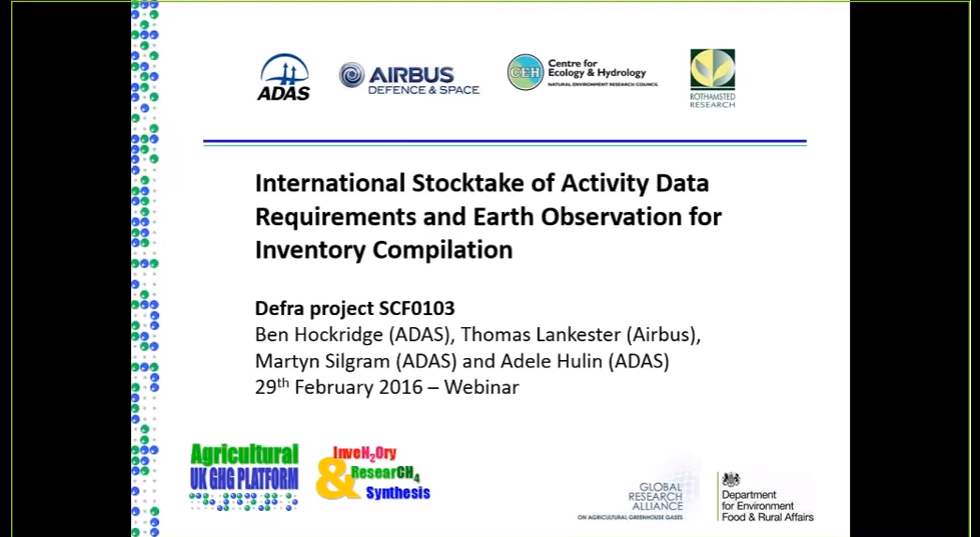
Our recently formed Integrative Research Group (IRG) now has its own web page: http://globalresearchalliance.org/research/integrative/
The IRG was agreed at the GRA Council meeting in September 2015 as a merger of the previous Soil Carbon Nitrogen Cycling Group and Inventories & Monitoring Groups. The IRG met for the first time at the Livestock Research Group Meeting in February 2016.
Visit the page for IRG information, including leadership, participating countries, and group activities.


